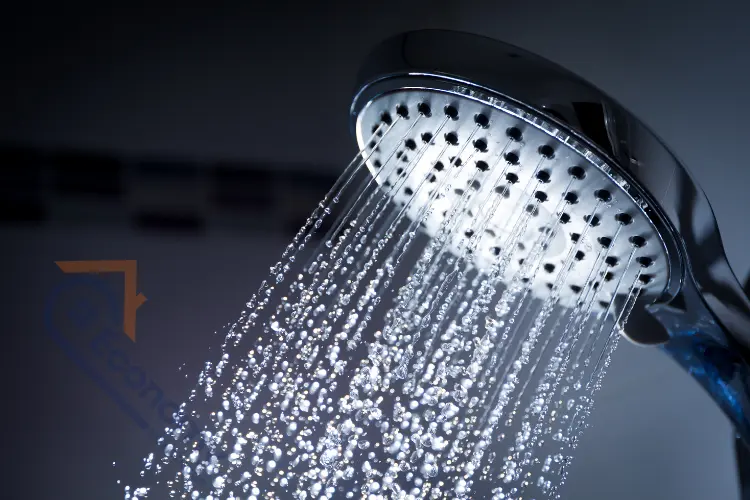Nothing ruins a relaxing shower quite like the smell of metal wafting through the water. If you’ve ever wondered why does my shower water smell like metal, you’re not alone. This common household problem affects millions of Americans and can turn your daily routine into an unpleasant experience. Understanding the causes behind metallic-smelling water and knowing how to fix them can help you get back to enjoying fresh, clean showers.
When shower water smells like metal, it’s usually a sign that something in your plumbing system needs attention. The metallic odor can range from a subtle hint of copper to a strong, overwhelming smell that makes you want to cut your shower short. While this issue might seem minor, it often indicates underlying problems that could affect your water quality and potentially your health.
Key Takeaways
Before diving into the details, here are the most important points to remember about metallic-smelling shower water:
- Iron and copper are the most common culprits behind metallic odors
- Old pipes and corroded plumbing systems frequently cause these smells
- Water heater problems can contribute to metallic odors
- Simple solutions like flushing your system often provide quick relief
- Professional help may be needed for persistent or severe cases
What Causes Metallic Smell in Shower Water?
Understanding the root causes of metallic-smelling water is the first step toward solving the problem. When shower water smells like metal, several factors could be at play. The most common causes include mineral deposits, corroded pipes, water heater issues, and problems with your municipal water supply.
Metallic odors in water typically result from dissolved metals leaching into your water supply. These metals can come from various sources throughout your plumbing system, from the main water line to the fixtures in your bathroom. The concentration of these metals determines how strong the metallic smell becomes, and certain conditions can make the problem worse.
Environmental factors also play a role in metallic water odors. Temperature changes, pH levels, and water pressure can all affect how metals dissolve into your water supply. Understanding these factors helps explain why the problem might be worse at certain times of day or during specific seasons.
Iron: The Primary Culprit Behind Metallic Odors
Iron is the most common reason why does my shower water smell like metal. This naturally occurring mineral can enter your water supply through several pathways, creating that distinctive metallic scent that many homeowners find bothersome. Iron concentrations as low as 0.3 parts per million can produce noticeable tastes and odors in your water.
There are two main types of iron found in water supplies: ferrous iron (dissolved) and ferric iron (oxidized). Ferrous iron is clear when it first comes out of your tap but turns rusty when exposed to air. Ferric iron, on the other hand, appears rusty right away and often creates visible particles in your water. Both types can contribute to metallic smells, but ferrous iron is more likely to cause the problem in shower water.
Iron bacteria can also intensify metallic odors in your water. These naturally occurring microorganisms feed on iron and can multiply in your plumbing system, creating biofilms that trap iron particles and intensify the metallic smell. When iron bacteria are present, you might notice a stronger metallic odor accompanied by slimy deposits around your shower fixtures.
Copper Pipes and Corrosion Issues
Copper plumbing, while durable and long-lasting, can contribute to metallic smells when it begins to corrode. When shower water smells like metal, copper pipes might be releasing small amounts of copper into your water supply. This process, called copper corrosion, becomes more common as pipes age and can be accelerated by acidic water conditions.
The corrosion process begins when water with a low pH level (acidic water) flows through copper pipes. Over time, this acidic water slowly dissolves the copper, creating small amounts of copper ions in your water supply. These ions not only cause metallic smells but can also give your water a slightly bitter taste and a blue-green tint.
Several factors can accelerate copper corrosion in your plumbing system. High water temperature, low pH levels, and high dissolved oxygen content all contribute to faster corrosion rates. Additionally, if your home has mixed-metal plumbing (copper pipes connected to galvanized steel pipes), the interaction between different metals can create galvanic corrosion, which speeds up the deterioration process.
Water Heater Problems and Metallic Smells
Your water heater can be a significant source of metallic odors, especially if you notice the smell is stronger with hot water. Understanding why does my shower water smell like metal often involves examining your water heater’s condition and maintenance history. Several water heater issues can contribute to metallic smells in your shower water.
The sacrificial anode rod in your water heater plays a crucial role in preventing corrosion. This rod is designed to corrode instead of your water heater tank, but when it becomes heavily corroded or depleted, it can contribute to metallic smells. Additionally, if your anode rod is made of aluminum, it can react with sulfur bacteria in your water, creating hydrogen sulfide gas that produces a rotten egg smell combined with metallic odors.
Sediment buildup in your water heater tank can also cause metallic smells. Over time, minerals and metal particles settle at the bottom of your tank, creating a breeding ground for bacteria and intensifying any existing metallic odors. Regular maintenance and flushing can help prevent this buildup and reduce metallic smells in your hot water supply.
Old Plumbing Systems and Galvanized Pipes
Older homes with galvanized steel pipes are particularly susceptible to metallic water odors. When shower water smells like metal in homes built before 1960, galvanized pipes are often the culprit. These pipes were coated with zinc to prevent rusting, but over time, this coating wears away, exposing the underlying steel to corrosion.
As galvanized pipes age, they develop rust and scale buildup inside the pipe walls. This corrosion process releases iron particles into your water supply, creating the metallic smell you notice in your shower. The problem typically gets worse over time as more of the protective zinc coating disappears and more steel becomes exposed to water.
Galvanized pipes also have a tendency to develop pinhole leaks and reduced water flow as they age. These issues can concentrate metallic particles in your water supply and make the metallic smell more noticeable. If your home has galvanized pipes that are more than 40 years old, replacing them might be the most effective long-term solution for eliminating metallic odors.
Municipal Water Supply Issues
Sometimes the source of metallic-smelling water isn’t in your home’s plumbing system but rather in the municipal water supply itself. When why does my shower water smell like metal becomes a neighborhood-wide concern, the problem likely originates from your local water treatment facility or distribution system.
Municipal water systems can develop metallic odors due to aging infrastructure, water treatment chemicals, or natural mineral content in the source water. Many older cities have water distribution systems with aging pipes that can leach metals into the water supply. Additionally, certain water treatment processes can alter the pH of water, making it more corrosive and likely to pick up metallic tastes and odors from pipes.
Seasonal changes can also affect municipal water supplies and contribute to metallic odors. During dry seasons, mineral concentrations in source water can increase, leading to stronger metallic smells. Heavy rains can also stir up sediments in reservoirs and treatment facilities, temporarily increasing the metallic content of your water supply.
Testing Your Water Quality
| Test Type | What It Measures | Normal Range | When to Test |
|---|---|---|---|
| Iron Level | Total iron content | <0.3 ppm | If metallic smell is present |
| Copper Level | Dissolved copper | <1.0 ppm | With copper pipes |
| pH Level | Water acidity/alkalinity | 6.5-8.5 | Annual testing |
| Hardness | Mineral content | 0-17 grains | When installing water softener |
Before attempting to fix metallic odors in your shower water, it’s important to identify the exact cause through proper water testing. Understanding why does my shower water smell like metal requires knowing which metals are present and in what concentrations. Professional water testing can provide detailed information about your water quality and help you choose the most appropriate solution.
Home test kits are available for basic water quality testing, but professional laboratory testing provides more accurate and comprehensive results. These tests can measure iron, copper, manganese, and other metals that might be causing the metallic smell. They can also test for pH levels, hardness, and other factors that contribute to metallic odors.
The timing of your water test matters too. If you suspect your water heater is the source of the problem, test both hot and cold water separately. If the metallic smell is stronger in the morning, test your water first thing after the pipes have been sitting overnight. This information helps pinpoint the source of the problem and guides your solution strategy.
Simple DIY Solutions to Try First
When shower water smells like metal, several simple solutions can provide quick relief without requiring professional help. These DIY approaches are worth trying before investing in expensive equipment or major plumbing repairs. Start with the simplest solutions and work your way up to more complex fixes if needed.
Flushing your water system is often the first step in addressing metallic odors. Run cold water from all faucets in your home for several minutes to clear out any stagnant water that might have accumulated metallic particles. Pay special attention to fixtures that aren’t used frequently, as these are more likely to have concentrated metallic odors.
Cleaning your showerhead and fixtures can also help reduce metallic smells. Remove mineral deposits and buildup by soaking your showerhead in white vinegar overnight. This process dissolves mineral deposits that might be contributing to the metallic odor and improves water flow. For fixtures with heavy buildup, you might need to repeat this process several times to see significant improvement.
Water Filtration Systems for Metallic Odors
Installing a water filtration system is one of the most effective ways to address persistent metallic odors in your shower water. When shower water smells like metal despite trying simple solutions, a filtration system can provide long-term relief. Different types of filters target different contaminants, so choosing the right system depends on your specific water quality issues.
Whole-house water filters treat all the water entering your home, ensuring that every faucet and fixture delivers clean, odor-free water. These systems typically use a combination of sediment filters, carbon filters, and specialized media to remove metals and other contaminants. While more expensive than point-of-use filters, whole-house systems provide comprehensive coverage and convenience.
Point-of-use filters, such as shower filters, offer a more targeted and affordable solution. These filters attach directly to your shower arm or are built into the showerhead itself. They’re particularly effective for addressing metallic odors that are primarily noticeable during showering. However, they don’t address the underlying cause of the metallic smell, so other fixtures in your home might still have the problem.
Professional Plumbing Solutions
When DIY solutions aren’t enough to solve your metallic water odor problem, professional plumbing services can provide comprehensive solutions. Understanding why does my shower water smell like metal sometimes requires expert diagnosis and specialized equipment that only professional plumbers possess. They can identify complex issues that might not be apparent to homeowners.
Pipe replacement is often necessary for homes with severely corroded plumbing systems. Professional plumbers can assess the condition of your pipes and recommend whether partial or complete replacement is needed. Modern piping materials like PEX or copper are less prone to corrosion and can provide decades of service without contributing to metallic odors.
Water heater maintenance and repair services can address metallic odors originating from your hot water system. Professional technicians can replace sacrificial anode rods, flush sediment from your tank, and perform other maintenance tasks that reduce metallic smells. In some cases, water heater replacement might be the most cost-effective solution for persistent hot water odor problems.
Prevention Tips and Maintenance
Preventing metallic odors in your shower water is often easier and less expensive than fixing them after they develop. Regular maintenance and proactive measures can help keep your water fresh and your plumbing system in good condition. Understanding why does my shower water smell like metal helps you take preventive steps to avoid the problem in the future.
Regular water testing should be part of your home maintenance routine, especially if you have older plumbing or have experienced water quality issues in the past. Annual testing can catch problems early before they become severe enough to cause noticeable odors. Keep records of your test results to track changes in your water quality over time.
Maintaining your water heater is crucial for preventing metallic odors in your hot water supply. Have your water heater serviced annually by a professional technician who can check the anode rod, flush sediment, and perform other maintenance tasks. This preventive maintenance can extend the life of your water heater and prevent many common causes of metallic water odors.
When to Call a Professional
While many metallic water odor problems can be addressed with DIY solutions, some situations require professional intervention. Knowing when to call a professional can save you time, money, and frustration. If shower water smells like metal persistently despite your best efforts, it’s time to seek expert help.
Severe metallic odors that don’t improve with flushing or basic maintenance indicate more serious underlying problems. These might include major pipe corrosion, water heater failure, or issues with your municipal water supply that require professional equipment and expertise to diagnose and fix.
Health concerns should also prompt you to seek professional help immediately. If you experience symptoms like stomach upset, skin irritation, or other health issues that might be related to your water quality, stop using the water for drinking and bathing until a professional can test and treat your water supply.
Cost Considerations and Budgeting
| Solution Type | Cost Range | Effectiveness | Longevity |
|---|---|---|---|
| Shower Filter | $25-$100 | Moderate | 6-12 months |
| Whole House Filter | $500-$2,000 | High | 5-10 years |
| Pipe Replacement | $2,000-$10,000 | Very High | 50+ years |
| Water Heater Service | $150-$400 | Moderate | 1-3 years |
Understanding the costs associated with different solutions helps you make informed decisions about addressing metallic odors in your shower water. When why does my shower water smell like metal becomes a persistent problem, weighing the costs and benefits of different solutions helps you choose the most appropriate approach for your situation and budget.
Short-term solutions like shower filters and water testing are relatively inexpensive and can provide immediate relief. These options are ideal for renters or homeowners who want to address the problem quickly without major investment. However, they might not address the underlying cause of the metallic smell.
Long-term solutions like pipe replacement or whole-house filtration systems require larger upfront investments but provide lasting results. These solutions are typically more cost-effective over time, especially if you’re dealing with severe or persistent metallic odors. Consider the age of your home, the condition of your plumbing, and your long-term plans when deciding between short-term and long-term solutions.
Frequently Asked Questions
Q: Is it safe to shower in water that smells like metal?
A: While metallic-smelling water is generally safe for showering, it can indicate underlying plumbing issues that should be addressed. If the smell is very strong or accompanied by discoloration, it’s best to have your water tested before continued use.
Q: Why does my shower water smell like metal only in the morning?
A: Morning metallic smells often result from water sitting in pipes overnight, allowing metals to leach into the water. This is particularly common with copper pipes or when iron bacteria are present in your system.
Q: Can a water softener help with metallic smells?
A: Water softeners can help reduce some metallic odors, particularly those caused by iron. However, they’re not effective against all types of metallic smells, and you might need additional filtration for complete odor removal.
Q: How often should I test my water for metals?
A: Annual testing is recommended for most homes. Test more frequently if you’ve had water quality issues in the past or if you notice changes in taste, smell, or appearance of your water.
Q: Will boiling water remove the metallic smell?
A: Boiling water won’t remove dissolved metals that cause metallic smells. In fact, it can concentrate these metals and make the smell stronger. Filtration is more effective for removing metallic odors.
Conclusion
Dealing with metallic-smelling shower water doesn’t have to be a permanent inconvenience. By understanding the various causes behind why does my shower water smell like metal, you can take appropriate steps to identify and address the problem. Whether the issue stems from iron in your water supply, corroded copper pipes, water heater problems, or aging galvanized plumbing, solutions are available to restore fresh, clean water to your shower.
Remember that when shower water smells like metal, the solution often depends on the specific cause and severity of the problem. Start with simple DIY solutions like flushing your system and cleaning fixtures before moving on to more complex fixes. Professional water testing can provide valuable insights into your water quality and help guide your decision-making process.
Taking action to address metallic water odors not only improves your daily shower experience but also protects your plumbing system from further damage. With proper maintenance, appropriate filtration, and professional help when needed, you can enjoy fresh, odor-free shower water for years to come. Don’t let metallic smells compromise your comfort – take steps today to identify and solve the problem.





